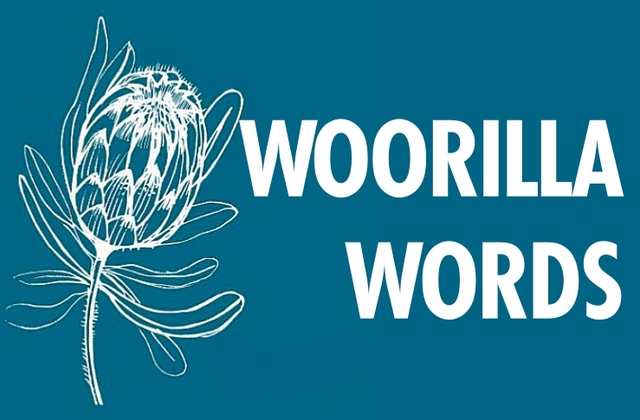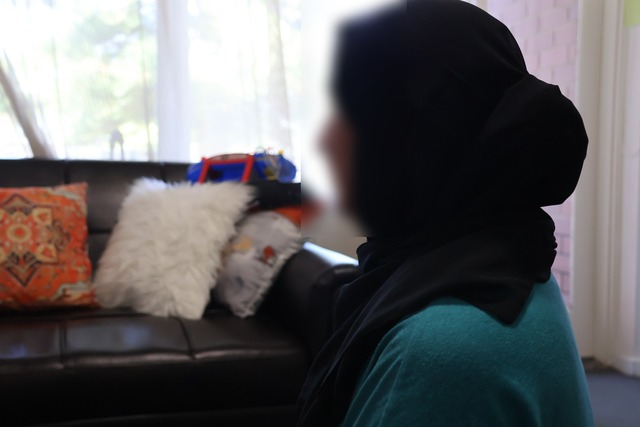August is that unpredictable month: warmer days, daffodils promising spring but still wintery.
It’s also National Poetry Month initiated by Red Room Poetry.
This initiative highlights First Nations voices, youth ambassadors, accessible workshops, and region-wide events, affirming that poetry isn’t just for the city or page — it’s for every voice and place.
Many, still scarred from classroom experiences shy away, others believe that poetry can never address the complexities of a society as ours.
And yet poetry an ancient form of storytelling is also the most suited to the digital age.
People sometimes ask what exactly is a poem?
Defining poetry is a slippery exercise.
The definition shifts with time and place.
If you try to draw hard borders, someone will immediately hop over them and declare they’ve made a poem.
For 19th century, Emily Dickinson poetry is defined by impact, an almost physical recognition of its impact: If I feel physically as if the top of my head were taken off, I know that is poetry.
She seemed little concerned about its form.
For others, going back as far as Wordsworth in the 19th century, poetry is about emotional truth and big feelings.
For T S Eliot, poetry was an act of craftsmanship, shaping language to transcend personal feelings.
He experimented with diction, style and form and liberated poetry from strict traditional forms.
By mid–late 20th century there was Beat poetry, Confessional poetry, Performance poetry.
Today poetry is no longer just something you read in a book.
It’s heard, watched, swiped, scrolled, and sometimes even played with like a digital game.
For Andy Jackson, poet, essayist and recipient of the Prime Minister’s Literary Award for Poetry, 2022 poems are as diverse as humanity.
‘It’s hard to be definitive about what defines a poem, let alone a great poem’
‘A great poem takes risks, has something at stake. Such a poem haunts, follows us around, resurfaces in tender or critical moments. Just when I think I know what I love, what moves and provokes me, something unexpected comes along. Poems are as diverse as humanity.’
Some decry the loss of traditional form. Again Jackson: ‘On first glance a poem needs line breaks, arranged intuitively to amplify or expand what’s being said but there are also prose
poems, which I suppose also expand the voice of the poem because they don’t have breaks.
Good poems leave room for the reader to bring their own life to the page and leave the reader with an afterglow.
The best poems stay with you.
You find yourself repeating a line in your head, or suddenly understanding it differently weeks later.
So it seems poetry doesn’t have clean borders. A speech, a rap, a prayer, or even an advertising jingle might be considered poetic, depending on the context.
And poetry doesn’t shy away from difficult subjects.
Andrew Jackson’s Human Looking draws on his experiences as a disabled person, living with the genetic condition Marfan Syndrome, challenging conventional perceptions of living in a body that often fails him.
Here we are at the enclosure, watching
a pair of giraffes in the distance, slowly
nodding as they walk away. Fences
like these keep us separate from the animals,
and the animals from us. My heart
so far is good. I’ve not followed my mom into
sudden agony and surgery. The okapis are threatened
and are here. I love their deep brown hides,
their zebra legs, their quietness. I’m torn
between reading the signs and just standing
here, watching them breathe. All our group
have Marfan, but it doesn’t have us.
Nearby, an ostrich is lowering itself gently
to the earth, its neck honest and determined
as a spine. I want a shirt that says no I don’t
play basketball. I play the clarinet and dance.
There’s surgery and medication. There’s a drift
of snow leopards, a pride of lions. We raise
money. We want to save ourselves.
Sarah Holland Batts’ The Jaguar is about watching her father’s decline, struggle and ultimate death from Parkinson’s disease and dementia.
It details his pain and degradation and shows the daughter’s helplessness to alleviate it,
In the garden, my father sits in his wheelchair
garlanded by summer hibiscus
like a saint in a seventeenth-century cartouche.
A flowering wreath buzzes around his head –
passionate red. He holds the gift of death
in his lap, oblong, wrapped in black.
He has been waiting seventeen years to open it
and is impatient. When I ask how he is
my father cries
Grace Yee’s Chinese Fish is a memoir of migration, stereotyping, family violence and racism.
Look at what the large importation of aliens
has done to Australia. Ask
any real Australian what
he thinks of the New Arrivals. Let’s fill our
lovely country with our own kind.
Yours, etc. A STERLING KIWI.
Alicia Sometimes has made science and astronomy the focus of many of her poems.
In her collection Stellar Atmospheres, she takes the reader across the universe.
Increasingly Indigenous poets are writing their histories.
Ellen van Neeren’s Throat is uncomfortable reading of discrimination as a black and queer woman.
we don’t get to choose our grief
if you want to pick at mine
try it on
And who can forget the powerful voice of Amanda Gorman at the 2020 inauguration of President Biden.
She highlights poetry’s power to unite and inspire on a grand public stage, even in times of political tension.
“We’ve braved the belly of the beast, we’ve learned that quiet isn’t always peace, and the norms and notions of what just is, isn’t always just-ice. And yet the dawn is ours before we
knew it, somehow we do it
A pioneer of Instapoetry, Rupi Kaur’s minimalist, emotionally raw lines made poetry approachable for millions.
She can distil connection and loss in just a few lines:
god must have kneaded you and I
from the same dough
…how unfair it was
to put that much magic in one person
and sadly split that dough in two
More than ever before, poetry is instantly relatable and sharable in today’s digital age.
Andy Jackson is the 2025 Judge for the Judith Rodrriguez, Open Category of the Woorilla Poetry Prize.







